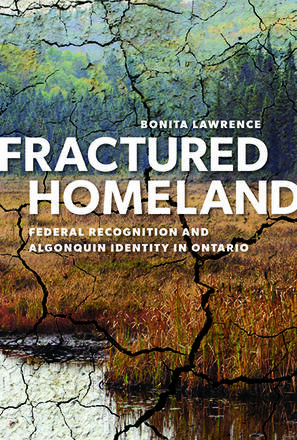
Fractured Homeland
Federal Recognition and Algonquin Identity in Ontario
A timely exploration of how a comprehensive land claim has fractured the search for identity and nationhood among federally unrecognized Algonquin people.
Description
In 1992, the Algonquins of Pikwakanagan, the only federally recognized Algonquin reserve in Ontario, launched a comprehensive land claim. The action not only drew attention to the fact that Canada had acquired Algonquin land without negotiating a treaty, but it also focused attention on the two-thirds of Algonquins who have never been recognized as Indian. Fractured Homeland is Bonita Lawrence’s stirring account of how the claim forced federally unrecognized Algonquin in Ontario to confront both the issue of their own identity and the failure of Algonquin leaders – who launched the claim – to develop a more inclusive vision of nationhood.
Awards
- Short-listed, Canada Prize in the Social Sciences, Canadian Federation for the Humanities and Social Sciences 2013
Reviews
A good case study of a people that have been too rarely discussed and too often misunderstood. Recommended.
- CHOICE, Vol. 50 No. 05